
Kod: 04923774
Rabelais and Bakhtin
Autor Richard M. Berrong
In Rabelais and Bakhtin, Richard M. Berrong demonstrates both the historical and textual weaknesses of the argument advanced by Mikhail Bakhtin and his influential study Rabelais and His World. The publication of Bakhtin's book i ... więcej
- Język:
 Angielski
Angielski - Oprawa: Miękka
- Liczba stron: 156
Wydawca: University of Nebraska Press, 2006
- Więcej informacji o książce

105.69 zł

Dostępna u dostawcy w małych ilościach
Wysyłamy za 10 - 14 dni
Potrzebujesz więcej egzemplarzy?Jeżeli jesteś zainteresowany zakupem większej ilości egzemplarzy, skontaktuj się z nami, aby sprawdzić ich dostępność.
Dodaj do schowka
Zobacz książki o podobnej tematyce
-

Paradise Lost and Paradise Regained
14.31 zł -3 % -

Hogwarts Legacy: The Official Game Guide
61.73 zł -23 % -

HERE, THERE AND EVERYWHERE
84.57 zł -7 % -

Political Correctness Gone Mad?
43.75 zł -15 % -

Waffen-SS Commanders: The Army, Corps and Division Leaders of a Legend-Augsberger to Kreutz
232.72 zł -10 % -
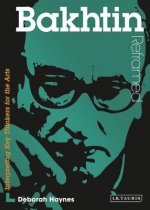
Bakhtin Reframed
146.41 zł -
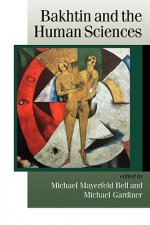
Bakhtin and the Human Sciences
426.15 zł -

Bakhtin Primer
137.07 zł -

Mikhail Bakhtin
164.89 zł -

Bakhtin's Carnival: LAOMA's three kinds of dramas
60 zł -
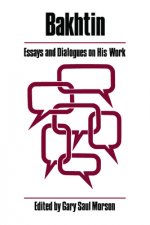
Bakhtin
115.44 zł -

Mikhail Bakhtin
169.26 zł -

Seven Strategy Questions
144.68 zł -6 % -

Political Correctness - A History of Semantics and Culture
255.57 zł
Bon podarunkowy: Radość gwarantowana
- Podaruj bon o dowolnej wartości, a my się zajmiemy resztą.
- Bon podarunkowy dotyczy całej naszej oferty.
- Możesz wydrukować elektroniczny bon z e-maila a następnie przekazać go obdarowanemu.
- Ważność bonu wynosi 12 miesięcy od daty wystawienia.
Więcej informacji o Rabelais and Bakhtin
Za ten zakup dostaniesz 61 punkty
 Opis
Opis
In Rabelais and Bakhtin, Richard M. Berrong demonstrates both the historical and textual weaknesses of the argument advanced by Mikhail Bakhtin and his influential study Rabelais and His World. The publication of Bakhtin's book in the West in the late 1960s brought both Rabelais and Bakhtin to the attention of students interested in the "New Criticism" in literature. Bakhtin argued that the key to Rabelais's narratives was to be found in their language of popular culture, which was intended to free his readers from the ideological "prison house" of official, establishment discourse; to provide them with a nonofficial perspective from which to view--and combat--the establishment and its institutions. Since the publication of Bakhtin's study, scholars such as Peter Burke, Natalie Zemon Davis, and Carlo Ginzburg have shown that the relationship of the upper classes to popular culture changed in the first half of the sixteenth century. Previously these classes had participated fully in the culture of the people (while adhering to their own), but at that time they undertook to exclude popular culture from their lives and from their world. In his refutation of Bakhtin's thesis, Berrong demonstrates the complex and shifting role of popular culture in Rabelais's narratives. His conclusions should interest not only readers of Gargantua and Pantagruel but all students of the sixteenth century, since the use and exclusion of popular culture is an issue in the study of many of the writers, artists, and composers of the period. Richard M. Berrong is an assistant professor of French at Kent State University. He is the author of Every Man for Himself: Social Order and Its Dissolution in Rabelais (1985).
 Szczegóły książki
Szczegóły książki
Kategoria Książki po angielsku Literature & literary studies Literature: history & criticism Literary theory
105.69 zł
- Pełny tytuł: Rabelais and Bakhtin
- Podtytuł: Popular Culture in "Gargantua and Pantagruel"
- Autor: Richard M. Berrong
- Język:
 Angielski
Angielski - Oprawa: Miękka
- Liczba stron: 156
- EAN: 9780803262614
- ISBN: 0803262612
- ID: 04923774
- Wydawca: University of Nebraska Press
- Waga: 204 g
- Wymiary: 203 × 127 × 10 mm
- Data wydania: 01. March 2006
Ulubione w innej kategorii
-
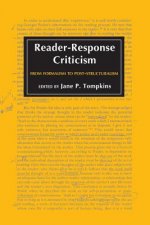
Reader-Response Criticism
177.48 zł -

Discipline and Punish
76.14 zł -13 % -
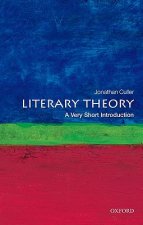
Literary Theory: A Very Short Introduction
43.75 zł -15 % -

Analysis of Burton G. Malkiel's A Random Walk Down Wall Street
39.29 zł -5 % -

Norton Anthology of Theory and Criticism
279.43 zł -

Analysis of Philip Zimbardo's The Lucifer Effect
39.29 zł -5 % -

How Fiction Works
52.38 zł -23 % -

Analysis of Jane Jacobs's The Death and Life of Great American Cities
39.29 zł -5 % -

Dictionary of Critical Theory
61.73 zł -23 % -

Critique of the Power of Judgment
219.42 zł -5 % -

Modern Criticism and Theory
375.49 zł -
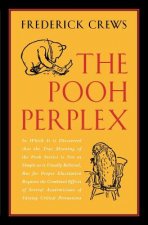
The Pooh Perplex
71.78 zł -3 % -

Postmodern Condition
87.72 zł -5 % -

Theory of Literature and Other Critical Writings
202.26 zł -

Analysis of Henry Kissinger's World Order
39.29 zł -5 % -

How Our Lives Become Stories
185.30 zł -

Analysis of Elizabeth F. Loftus's Eyewitness Testimony
52.89 zł -
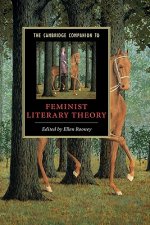
Cambridge Companion to Feminist Literary Theory
212.82 zł -

Literary Theory - A Practical Introduction 3e
217.28 zł -
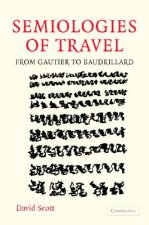
Semiologies of Travel
472.76 zł -

Notes to Literature
213.22 zł -

French Literature: A Very Short Introduction
43.25 zł -23 % -

Comparison
214.04 zł -

Beginning Theory
70.76 zł -4 % -

How to Read and Why
61.73 zł -23 % -

Critical Terms for Literary Study, Second Edition
191.39 zł -

Analysis of Oliver Sacks's The Man Who Mistook His Wife for a Hat and Other Clinical Tales
39.29 zł -5 % -

Flatline Constructs
64.87 zł -6 % -

Literary Theory - An Anthology, Third Edition
176.97 zł -3 % -
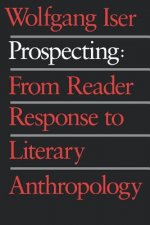
Prospecting
173.42 zł -
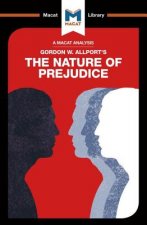
Analysis of Gordon W. Allport's The Nature of Prejudice
39.29 zł -5 % -
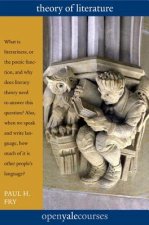
Theory of Literature
106.61 zł -4 % -

Criticism and Ideology
106.91 zł -

Literary Theory: A Complete Introduction
70.97 zł -23 % -

On the Origin of Stories
135.44 zł -

Strategies of Fantasy
107.32 zł -

Narratology
206.12 zł -

Literary Theory: The Basics
122.55 zł -

Literary Criticism from Plato to the Present - An Introduction
165.19 zł -3 % -

Wellness Syndrome
134.23 zł -

British Folk Tales and Legends
87.72 zł -5 % -
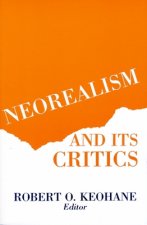
Neorealism and Its Critics
229.98 zł -

Allegories of Reading
122.65 zł -4 % -

Cambridge Companion to Literature and Psychoanalysis
159.92 zł -
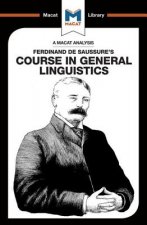
Analysis of Ferdinand de Saussure's Course in General Linguistics
53.30 zł -

Walter Benjamin and the Media - The Spectacle of Modernity
95.84 zł -14 % -

Analysis of Erwin Panofsky's Meaning in the Visual Arts
52.89 zł -

Art of Reading Poetry
42.94 zł -12 % -

Fantastic
151.08 zł
zadowolonych klientów
Od roku 2008 obsłużyliśmy wielu miłośników książek, ale dla nas każdy był tym wyjątkowym.
Copyright! ©2008-24 libristo.pl Wszelkie prawa zastrzeżonePrywatnieCookies


 21 milionów książek
21 milionów książek Dostawa 10.99 zł
Dostawa 10.99 zł (32) 444 93 66 (8-15.30h)
(32) 444 93 66 (8-15.30h)